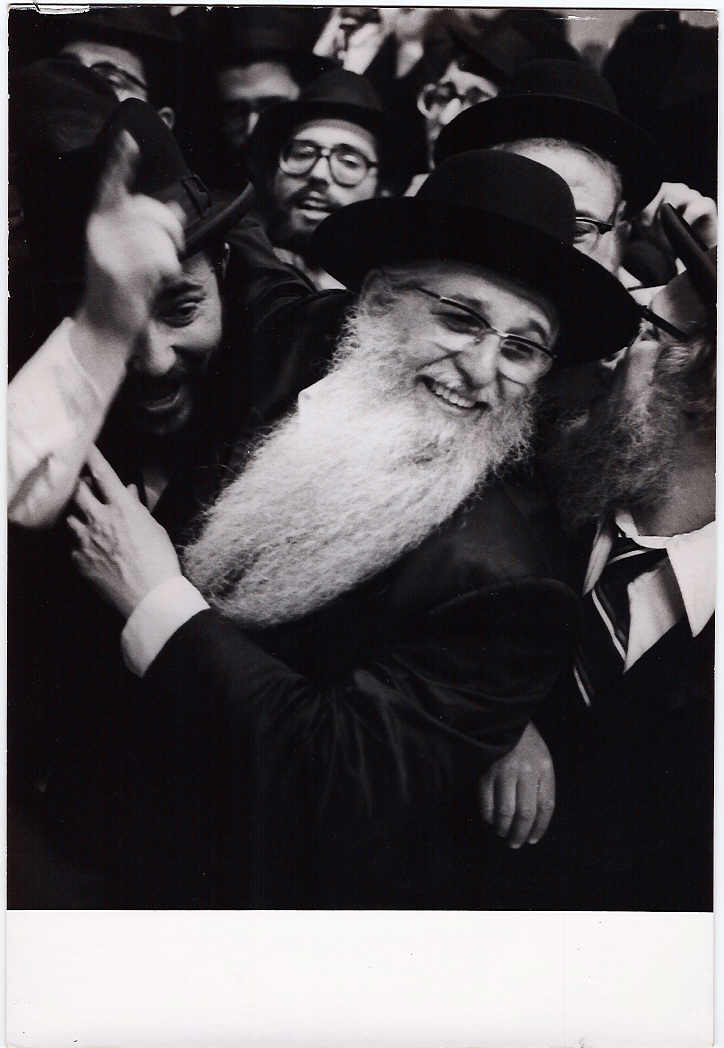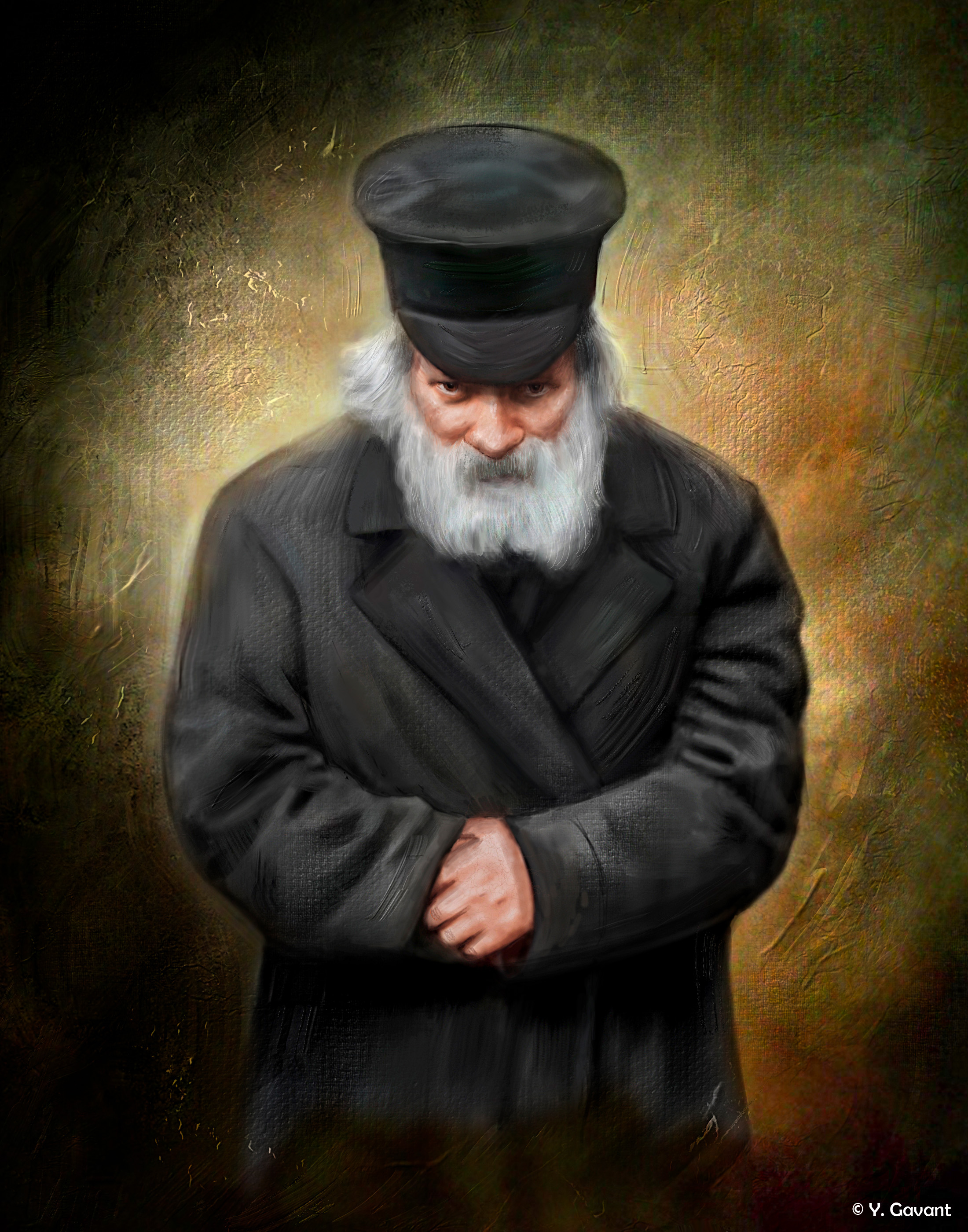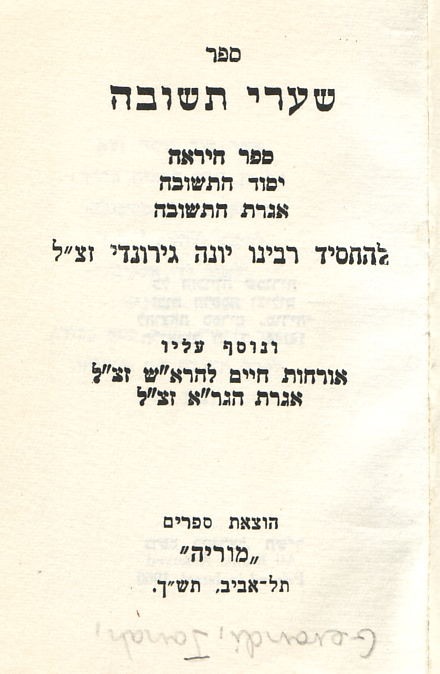|
Shraga Silverstein
Rabbi Shraga Silverstein was a Rabbi, author, and translator. He translated a number of books, including seventeen that were not published by 2014, and wrote three books himself. He lived in Jerusalem until his death in 2014. Biography Rabbi Shraga Silverstein graduated from Brooklyn College summa cum laude, with honours in English. He was also an alumnus of Mesivta Rabbi Chaim Berlin. He taught in universities in the United States and Israel and served as Principal of various yeshivas. Books authored * * * Translations * Shmirath Halashon (by the Chofetz Chaim) * The Knowing Heart: Da'Ath Tevunoth (by Moshe Chayim Luzzatto) * Ways of the Tzaddikim: Orchos Tzaddikim * The Gates of Repentance: Sha'arei Teshuvah (by Jonah Ben Abraham Gerondi) * The Path of the Just/Mesillat Yesharim (by Moshe Chayim Luzzatto) * Derashoth HaRan / The Discourses of the Ran (by Nissim of Gerona) * The Essential Torah Temimah (by Boruch Halevi Epstein) * The Rashi Chumash (by Rashi) * Pathways t ... [...More Info...] [...Related Items...] OR: [Wikipedia] [Google] [Baidu] |
Rabbi
A rabbi () is a spiritual leader or religious teacher in Judaism. One becomes a rabbi by being ordained by another rabbi – known as ''semikha'' – following a course of study of Jewish history and texts such as the Talmud. The basic form of the rabbi developed in the Pharisees, Pharisaic (167 BCE–73 CE) and Talmudic (70–640 CE) eras, when learned teachers assembled to codify Judaism's written and oral laws. The title "rabbi" was first used in the first century CE. In more recent centuries, the duties of a rabbi became increasingly influenced by the duties of the Clergy, Protestant Christian minister, hence the title "pulpit rabbis", and in 19th-century Germany and the United States rabbinic activities including sermons, pastoral counseling, and representing the community to the outside, all increased in importance. Within the various Jewish denominations, there are different requirements for rabbinic ordination, and differences in opinion regarding who is recognized as ... [...More Info...] [...Related Items...] OR: [Wikipedia] [Google] [Baidu] |
Jerusalem
Jerusalem (; he, יְרוּשָׁלַיִם ; ar, القُدس ) (combining the Biblical and common usage Arabic names); grc, Ἱερουσαλήμ/Ἰεροσόλυμα, Hierousalḗm/Hierosóluma; hy, Երուսաղեմ, Erusałēm. is a city in Western Asia. Situated on a plateau in the Judaean Mountains between the Mediterranean Sea, Mediterranean and the Dead Sea, it is one of the List of oldest continuously inhabited cities, oldest cities in the world and is considered to be a holy city for the three major Abrahamic religions: Judaism, Christianity, and Islam. Both Israelis and Palestinians claim Jerusalem as their Capital city, capital, as Israel maintains its primary governmental institutions there and the State of Palestine ultimately foresees it as its seat of power. Because of this dispute, Status of Jerusalem, neither claim is widely recognized internationally. Throughout History of Jerusalem, its long history, Jerusalem has been destroyed at least twice, Sie ... [...More Info...] [...Related Items...] OR: [Wikipedia] [Google] [Baidu] |
Brooklyn College
, mottoeng = Nothing without great effort , established = , parent = CUNY , type = Public university , endowment = $98.0 million (2019) , budget = $123.96 million (2021) , president = Michelle Anderson , provost = Anne Lopes , faculty = 534 full-time,878 part-time (2018) , students = 17,811 (2019) , undergrad = 14,970 (2019) , postgrad = 2,841 (2019) , city = Brooklyn , state = New York, New York , country = United States , coordinates = , campus = Urban, , colors = Maroon, gold, & grey , free_label = , free = , athletics_affiliations = , sports_nickname = Bulldogs , mascot = Buster the Bulldog , website = , logo = Brooklyn Colle ... [...More Info...] [...Related Items...] OR: [Wikipedia] [Google] [Baidu] |
Summa Cum Laude
Latin honors are a system of Latin phrases used in some colleges and universities to indicate the level of distinction with which an academic degree has been earned. The system is primarily used in the United States. It is also used in some Southeastern Asian countries with European colonial history, such as Indonesia and the Philippines, although sometimes translations of these phrases are used instead of the Latin originals. The honors distinction should not be confused with the honors degrees offered in some countries, or with honorary degrees. The system usually has three levels of honor: ''cum laude'', ''magna cum laude'', and ''summa cum laude''. Generally, a college or university's regulations set out definite criteria a student must meet to obtain a given honor. For example, the student might be required to achieve a specific grade point average, submit an honors thesis for evaluation, be part of an honors program, or graduate early. Each school sets its own standards. ... [...More Info...] [...Related Items...] OR: [Wikipedia] [Google] [Baidu] |
Mesivta Rabbi Chaim Berlin
Yeshiva Rabbi Chaim Berlin or ''Yeshivas Rabbeinu Chaim Berlin'' ( he, יְשִׁיבַת רַבֵּינוּ חַיִּים בֶּרלִין) is an American Haredi Lithuanian-type boys' and men's yeshiva in Brooklyn, New York. Chaim Berlin consists of a preschool, a ''yeshiva ketana'' (elementary school), a ''mesivta'' (high school), a college-level beth midrash, and Kollel Gur Aryeh, its post-graduate kollel division. History The school was established in 1904 as ''Yeshiva Tiferes Bachurim'' in Brownsville, Brooklyn, by Jews who moved there from the Lower East Side of New York City,(May 14, 1964"Yeshiva Fire Loss Is $150,000; Brooklyn School Not Insured" ''The New York Times''. Retrieved September 16, 2019. thus making it the oldest yeshiva in Kings County. At the suggestion of Meir Berlin (Bar-Ilan), it was renamed in 1914 for his brother, Chaim Berlin, Chief Rabbi of Moscow and later Jerusalem, and who had also served in Valozhyn, from where several of the yeshiva's founders cam ... [...More Info...] [...Related Items...] OR: [Wikipedia] [Google] [Baidu] |
Israel
Israel (; he, יִשְׂרָאֵל, ; ar, إِسْرَائِيل, ), officially the State of Israel ( he, מְדִינַת יִשְׂרָאֵל, label=none, translit=Medīnat Yīsrāʾēl; ), is a country in Western Asia. It is situated on the Eastern Mediterranean, southeastern shore of the Mediterranean Sea and the northern shore of the Red Sea, and Borders of Israel, shares borders with Lebanon to the north, Syria to the northeast, Jordan to the east, and Egypt to the southwest. Israel also is bordered by the Palestinian territories of the West Bank and the Gaza Strip to the east and west, respectively. Tel Aviv is the Economy of Israel, economic and Science and technology in Israel, technological center of the country, while its seat of government is in its proclaimed capital of Jerusalem, although Status of Jerusalem, Israeli sovereignty over East Jerusalem is unrecognized internationally. The land held by present-day Israel witnessed some of the earliest human occup ... [...More Info...] [...Related Items...] OR: [Wikipedia] [Google] [Baidu] |
Yeshiva
A yeshiva (; he, ישיבה, , sitting; pl. , or ) is a traditional Jewish educational institution focused on the study of Rabbinic literature, primarily the Talmud and halacha (Jewish law), while Torah and Jewish philosophy are studied in parallel. The studying is usually done through daily ''shiurim'' (lectures or classes) as well as in study pairs called ''chavrusas'' (Aramaic for 'friendship' or 'companionship'). ''Chavrusa''-style learning is one of the unique features of the yeshiva. In the United States and Israel, different levels of yeshiva education have different names. In the United States, elementary-school students enroll in a ''cheder'', post- bar mitzvah-age students learn in a '' metivta'', and undergraduate-level students learn in a '' beit midrash'' or ''yeshiva gedola'' ( he, ישיבה גדולה, , large yeshiva' or 'great yeshiva). In Israel, elementary-school students enroll in a '' Talmud Torah'' or '' cheder'', post-bar mitzvah-age students ... [...More Info...] [...Related Items...] OR: [Wikipedia] [Google] [Baidu] |
Chofetz Chaim
The '' Sefer'' ''Chafetz Chaim'' (or ''Chofetz Chaim'' or ''Hafetz Hayim'') ( he, חָפֵץ חַיִּים, trans. "Desirer of Life") is a book by Rabbi Yisrael Meir Kagan, who is also called "the Chofetz Chaim" after it. The book deals with the Jewish ethics and laws of speech. The Sefer The title of the ''Chafetz Chaim'' is taken from Psalms: The subject of the book is ''hilchos shmiras halashon'' (laws of clean speech). Kagan provides copious sources from the Torah, Talmud and ''Rishonim'' about the severity of Jewish law on tale-mongering and gossip. Lashon hara, meaning "'evil speech" (or loosely gossip and slander and prohibitions of defamation), is sometimes translated as "prohibitions of slander", but in essence is concerning the prohibitions of saying evil/bad/unpleasant things about a person, whether or not they are true. The book is divided into three parts: * ''Mekor Chayim'' ("Source of Life"), the legal text. * ''Be'er mayim chayim'' ("Well of living water") ... [...More Info...] [...Related Items...] OR: [Wikipedia] [Google] [Baidu] |
Moshe Chayim Luzzatto
Moshe Chaim Luzzatto ( he, משה חיים לוצאטו, also ''Moses Chaim'', ''Moses Hayyim'', also ''Luzzato'') (1707 – 16 May 1746 (26 ''Iyar'' 5506)), also known by the Hebrew acronym RaMCHaL (or RaMHaL, ), was a prominent Italian Jewish rabbi, kabbalist, and philosopher. Biography Early life Moshe Chaim Luzzatto was born in 1707 in the Jewish ghetto of Padua, Republic of Venice. The son of Jacob Vita and Diamente Luzzatto, he received classical Jewish and Italian education, showing a predilection for literature at a very early age. He may have attended the University of Padua and certainly associated with a group of students there, known to dabble in mysticism and alchemy. With his vast knowledge in religious lore, the arts, and science, he quickly became the dominant figure in that group. His writings demonstrate mastery of the Tanakh, the Talmud, and the rabbinical commentaries and codes of Jewish law. Poetry and literature At an early age, he began a tho ... [...More Info...] [...Related Items...] OR: [Wikipedia] [Google] [Baidu] |
Jonah Ben Abraham Gerondi
Rabbi Jonah ben Abraham Gerondi ( he, יוֹנָה בֶּן־אַבְרָהָם גִירוֹנְדִי ''Yōnāh bēn-ʾAvrāhām Gīrōndī'', "Jonah son of Abraham the Gironan"; died 1264), also known as Jonah of Girona and Rabbeinu Yonah (), was a Catalan rabbi and moralist, cousin of Nahmanides. He is most famous for his ethical work ''The Gates of Repentance'' ( he, שערי תשובה). Biography Much of what is known about his life comes from a responsum by Solomon ben Simon Duran, one of his descendants. Jonah Gerondi came from Girona, in Catalonia (present-day Spain). He was the most prominent pupil of Solomon ben Abraham of Montpellier, the leader of the opponents of Maimonides' philosophical works, and was one of the signers of the ban proclaimed in 1233 against '' The Guide for the Perplexed'' and the ''Sefer ha-Madda''. According to his pupil, Hillel ben Samuel, Gerondi was the instigator of the public burning of Maimonides' writings by order of the aut ... [...More Info...] [...Related Items...] OR: [Wikipedia] [Google] [Baidu] |
Nissim Of Gerona
Nissim ben Reuven (1320 – 9th of Shevat, 1376, he, נִסִּים בֶּן רְאוּבֵן) of Girona, Catalonia was an influential talmudist and authority on Jewish law. He was one of the last of the great Spanish medieval Talmudic scholars. He is also known by his Hebrew acronym, the RaN (), or else with the definite article HaRaN (), as well as by the name RaNbaR (), the Hebrew acronym of his full name, including his father's name, Reuven (), and also by Nissim Gerondi. Biography Nissim was born in Barcelona, Catalonia. He was a physician and had knowledge of astronomy. His teacher is not known; his works refer to a R. Perez as ''morenu'' ("our teacher"), but as he refers to his father (Reuben ben Nissim) as "my father and teacher" perhaps his father was his primary teacher. He served as a judge and teacher for the Jewish community in Barcelona, and founded a yeshiva there. He criticized the wealthy members of the community for their behavior, but this provoked a hostile b ... [...More Info...] [...Related Items...] OR: [Wikipedia] [Google] [Baidu] |
Boruch Halevi Epstein
Baruch Epstein or Baruch ha-Levi Epstein (1860–1941) ( he, ברוך הלוי אפשטיין) was a Lithuanian Jewish rabbi, best known for his ''Torah Temimah'' commentary on the Torah. He was the son of Rabbi Yechiel Michel Epstein, rabbi of Novarodok and author of the work '' Arukh HaShulkhan''. Biography Epstein grew up in Novarodok, where his father was the communal rabbi, but moved to the city of Pinsk after his marriage to the daughter of Rabbi Elazar Moshe Horowitz, and lived there until his death, apart from a period from 1923 to 1926, which he spent in the United States looking (unsuccessfully) for a rabbinic position. During this period he served as the first ''menahel'' (director) of Ezras Torah from around 1924 until he was succeeded by Rav Henkin around the year 1925. Although Epstein was a bookkeeper by profession, he had been a student at the Volozhin Yeshiva under his uncle Rabbi Naftali Zvi Yehuda Berlin (who became his brother-in-law after being widowe ... [...More Info...] [...Related Items...] OR: [Wikipedia] [Google] [Baidu] |





